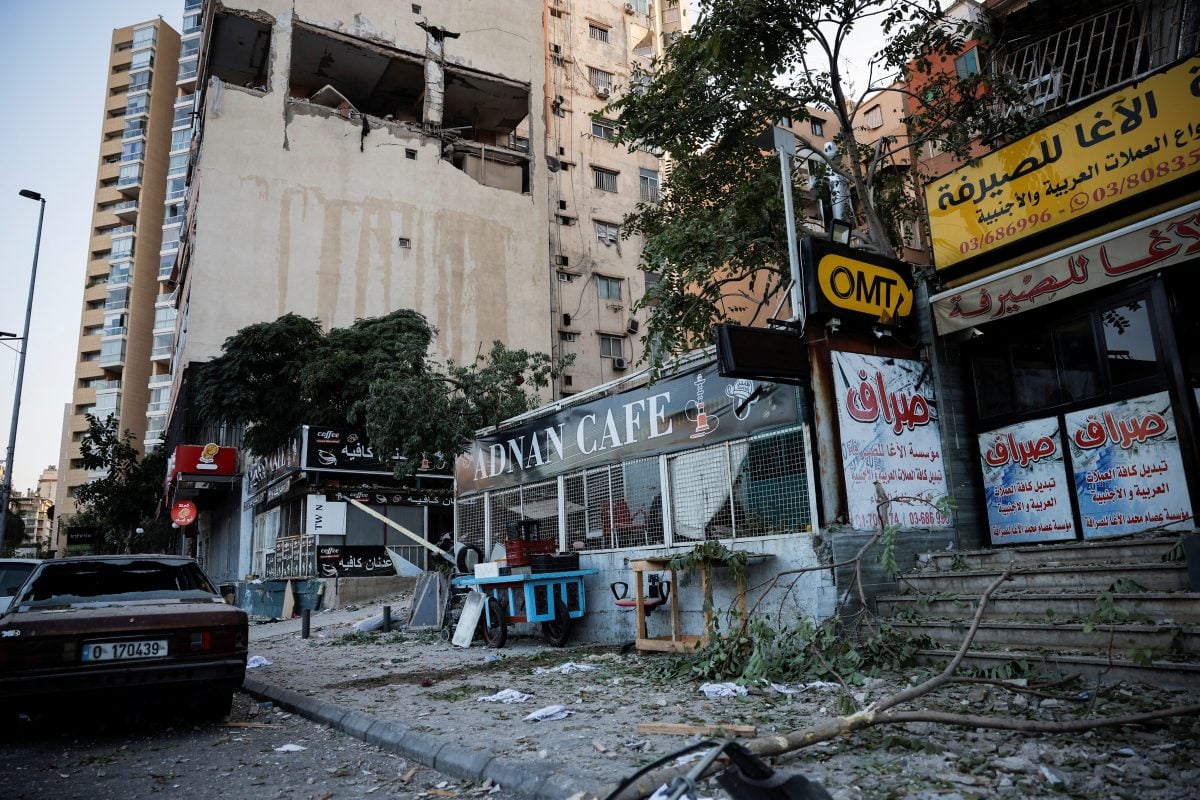BEIRUT, (Reuters) – The Palestinian militant group Hamas said an Israeli airstrike killed its leader in Lebanon in the city of Tyre today, and another Palestinian organisation said three of its leaders were killed in a strike in central Beirut – the first such hit inside the capital’s limits.
The killings were the latest in a two-week wave of intensified Israeli attacks on militant targets in Lebanon, part of a conflict now also stretching from the Palestinian territories of Gaza and the occupied West Bank, to Yemen, and in Israel itself.
Hamas said its leader in Lebanon, Fateh Sherif Abu el-Amin was killed along with his wife, son and daughter, in a strike that targeted their house in a refugee camp in the southern Lebanese city of Tyre in the early hours of Monday.
Another group, the Popular Front for the Liberation of Palestine (PFLP), said three of its leaders were killed in a strike that targeted Beirut’s Kola district.
This was the first time Israel had struck Beirut beyond the city’s southern suburbs in a campaign which culminated in the assassination of Hezbollah’s veteran leader Hassan Nasrallah last week in a succession of heavy air strikes.
The strike against the PFLP hit the upper floor of an apartment building, Reuters witnesses said. There was no immediate comment from the Israeli military.
The latest attacks indicated Israel has no intention of slowing down its offensive on multiple fronts even after eliminating Nasrallah, who was Iran’s most powerful ally in its “Axis of Resistance” against Israeli and U.S. influence in the region.
Lebanon’s Health Ministry says more than 1,000 Lebanese have been killed and 6,000 wounded in the past two weeks, without specifying how many were civilians. One million people – a fifth of the population – have fled their homes, the government says.
The escalation has put Beirut on edge, with Lebanese fearful that Israel will expand its military campaign.
“There is nothing else to say or add, except God save Lebanon,” Beirut resident Nawel said. “What will happen to me is the same as what can happen to anyone.”
The intensifying Israeli bombardments have killed a string of top officials of the Iran-backed Hezbollah, Israel’s arch-enemy.
On Sunday, Israel carried out airstrikes on dozens of Hezbollah targets throughout Lebanon and against the Iran-aligned Houthi militia in Yemen.
The death toll across Lebanon on Sunday rose to 105, health ministry statements showed.
The Houthi-run health ministry in Yemen said at least four people were killed in airstrikes on the port of Hodeidah, which Israel said were a response to Houthi missile attacks.
Israeli drones hovered over Beirut for much of Sunday, with the loud blasts of new airstrikes echoing around the Lebanese capital.
Many of Israel’s attacks have been carried out in the south of Lebanon, where Hezbollah has most of its operations, or Beirut’s southern suburbs. Monday’s attack in the Kola district appeared to be the first strike within Beirut’s city limits.
Israel has vowed to keep up the assault and says it wants to make its northern areas secure again for residents who have been forced to flee Hezbollah rocket attacks.
Exchanges of fire across the Lebanon-Israel border have been taking place almost daily since the war between Hamas and Israel erupted nearly a year ago. Hezbollah has said it was acting in solidarity with Hamas.
The United States, Israel’s close ally, has urged a diplomatic resolution to the conflict in Lebanon but has also authorised its military to reinforce in the region.
U.S. President Joe Biden, asked if an all-out war in the Middle East could be avoided, said: “It has to be.”
He said he would be talking to Israeli Prime Minister Benjamin Netanyahu.










